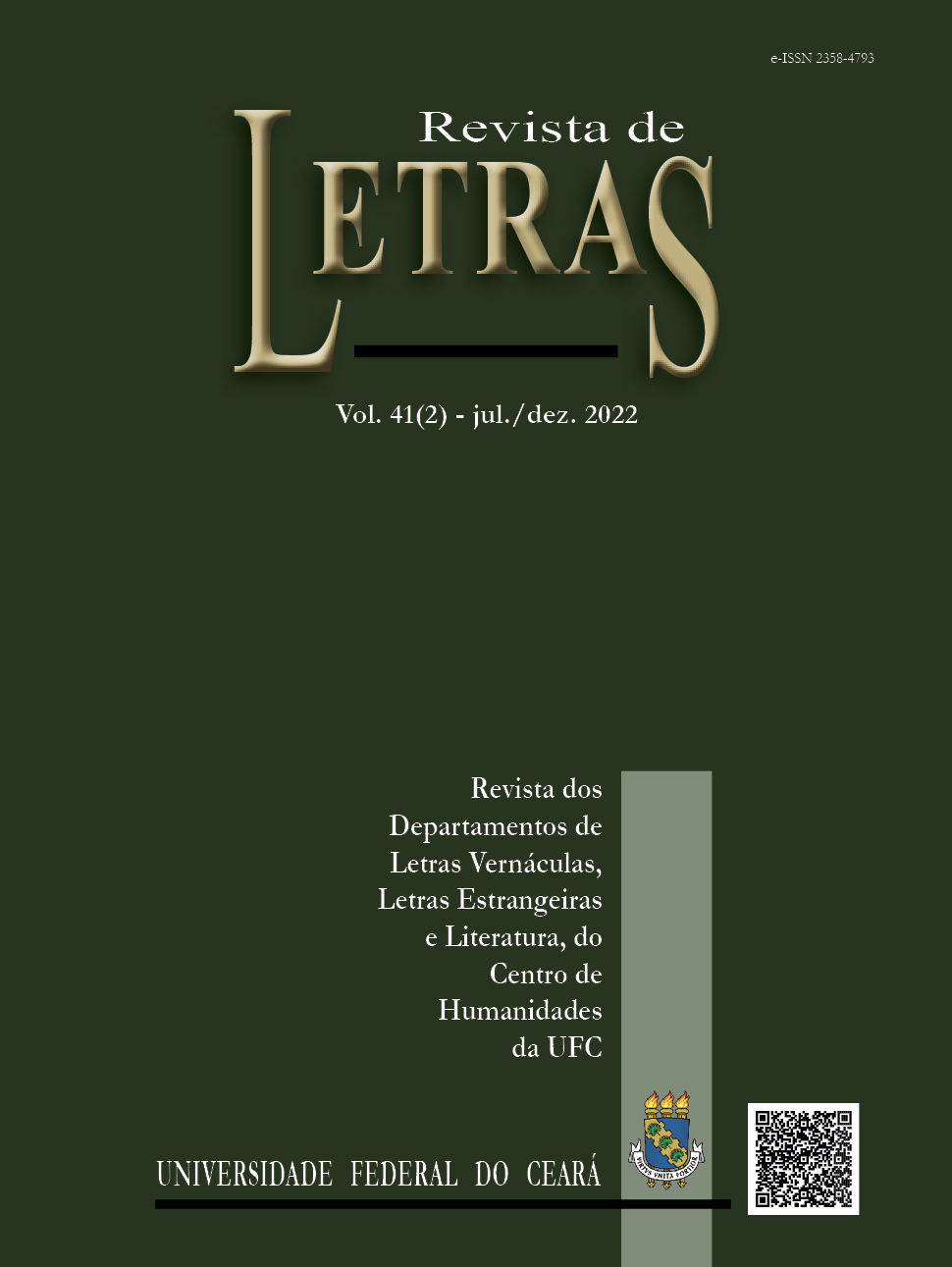A ENGENHARIA DIDÁTICA COMO (MEGA)INSTRUMENTO DE PROFISSIONALIZAÇÃO PARA O ESTAGIÁRIO
TEACHING ENGINEERING AS A (MEGA) PROFESSIONALIZATION INSTRUMENT FOR THE INTERN
DOI:
https://doi.org/10.36517/revletras.41.2.3Abstract
In this text, we present reflections on teacher training within the scope of the degree course in Portuguese Language and Literature, specifically in the mandatory curricular supervised internship. The objective is to reflect on the didactic repertoire used by the intern to plan and carry out the supervised internship. It is urgent to debate what they are and how the spaces for initial teacher training are being used in the composition of didactic itineraries for planning and development of the supervised internship, given that the challenges and difficulties haunt and increasingly distance interns from the situation of teaching work. in the field schools and cause them to distance themselves from the teaching practice. We rely on the theoretical-methodological contribution of Sociodiscursive Interactionism and on the proposed model and didactic engineering of the Geneva group (BRONCKART, 2006; 2008; 2012; DOLZ, NOVERRAZ and SCHNEUWLY, 2004; CICUREL, 2020; LEURQUIN, 2013). The class genre can provide the teacher's apprentice with a subjective and formative look at teaching management and (re)think ways of doing that represent the teacher's action from the angle of teaching theory and practice, enabling self-knowledge about work and its role as a teacher. future Portuguese language teacher. In this way, the study intends to reflect on the teaching practice through the didactic repertoire planned by the intern and its mechanisms of reflection in/on the teaching work. This is qualitative research and the results are based on a questionnaire answered by the interns through GoogleForms, to reflect on the didactic mechanisms of planning and execution of the supervised internship, and if it contributed (or not) to the initial training. Based on the analyzed results, we launched some clues in order to start a discussion that is not limited to the final considerations of this study.
Downloads
Downloads
Published
How to Cite
Issue
Section
License
Autores que publicam nesta revista concordam com os seguintes termos:- Autores mantêm os direitos autorais e concedem à revista o direito de primeira publicação, com o trabalho simultaneamente licenciado sob a Licença Creative Commons Attribution que permite o compartilhamento do trabalho com reconhecimento da autoria e publicação inicial nesta revista.
- Autores têm autorização para assumir contratos adicionais separadamente, para distribuição não-exclusiva da versão do trabalho publicada nesta revista (ex.: publicar em repositório institucional ou como capítulo de livro), com reconhecimento de autoria e publicação inicial nesta revista.
- Autores têm permissão e são estimulados a publicar e distribuir seu trabalho online (ex.: em repositórios institucionais ou na sua página pessoal) a qualquer ponto antes ou durante o processo editorial, já que isso pode gerar alterações produtivas, bem como aumentar o impacto e a citação do trabalho publicado (Veja O Efeito do Acesso Livre).

.png)





.png)
